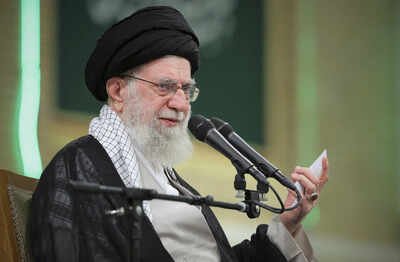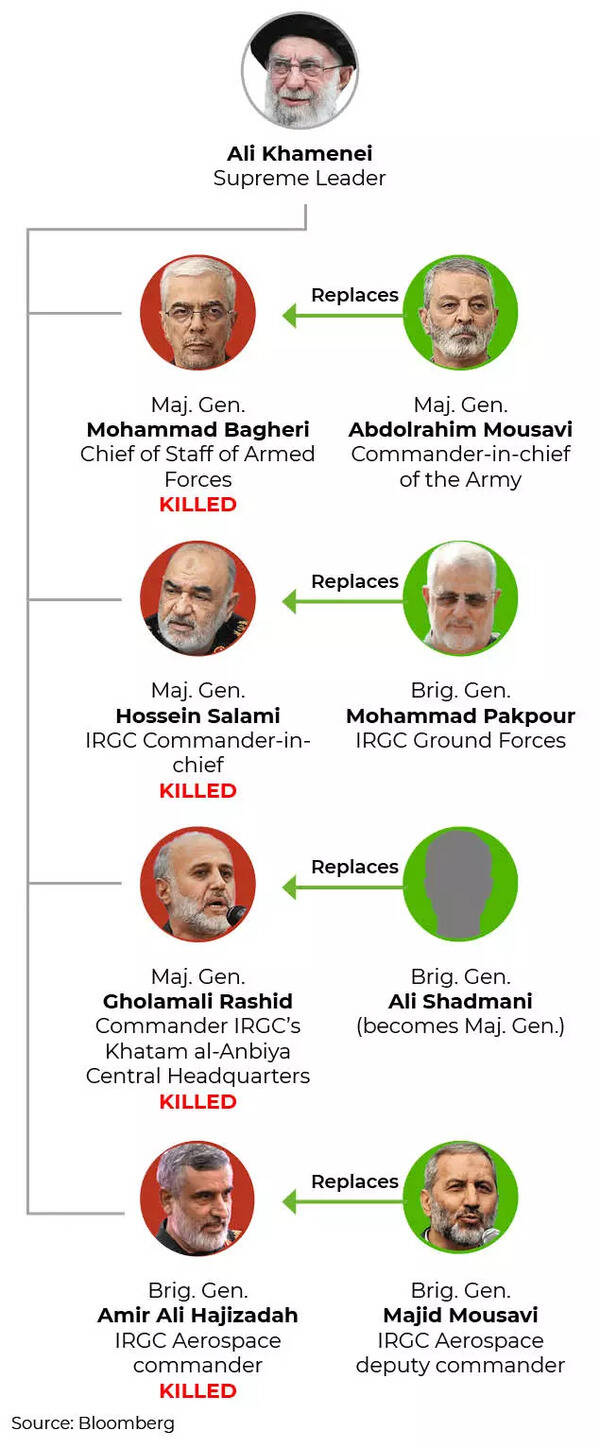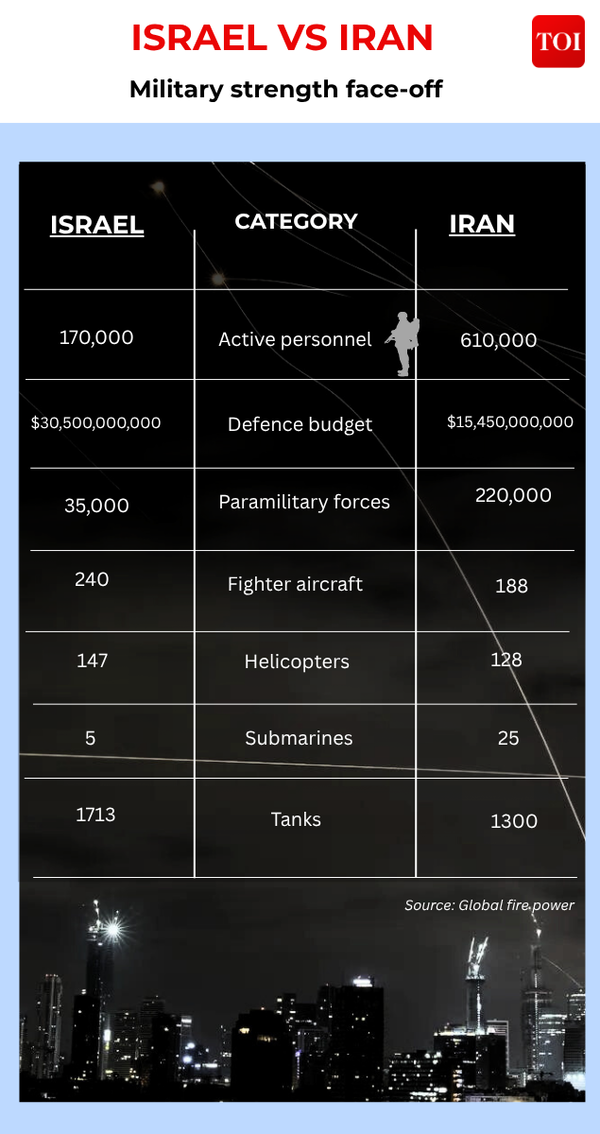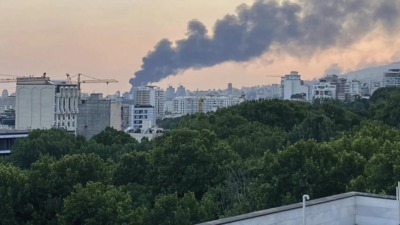
Iran unleashed a wave of over 100 missiles on Israeli cities early Monday, killing five and injuring more than 100 – striking Tel Aviv, Haifa, and Petah Tikva. The attack followed Israel’s surprise air campaign that bombarded Iran’s nuclear and military infrastructure, killing at least 224 people – many of them civilians – and decimating the upper ranks of the Revolutionary Guard.The tit-for-tat marks the fourth straight day of open warfare between the regional archrivals and shows no signs of de-escalation.Why it matters
- This is no longer a proxy conflict. Israel has directly struck inside Iran, and Iran has retaliated with direct missile fire on Israeli population centers. The scale, speed, and ferocity of the strikes mark a dangerous new phase with no clear off-ramp – and Iran’s regime is facing pressure on all fronts: militarily, economically, diplomatically and domestically.
- It’s the worst direct confrontation between Iran and Israel in history. The war could spiral into a broader Middle East conflagration, upend global oil markets, and collapse already-stalled nuclear diplomacy.
- Energy implications: Crude oil surged 13% on Friday – the biggest intraday gain since Russia invaded Ukraine. While oil briefly hit $78 per barrel, experts warn prices could soar past $100 if Iran disrupts the Strait of Hormuz, through which one-fifth of global oil flows.
The big pictureIran now faces a triad of perilous choices
- Escalate – risking full-scale war with Israel and possible US involvement.
- Contain the conflict – aiming for limited, sustained strikes while avoiding American red lines.
- Negotiate – possibly with US mediation – to halt the fighting and restore nuclear talks, though trust is virtually nonexistent.
Each carries enormous risks for Iran’s clerical leadership. Supreme Leader Ayatollah Ali Khamenei must weigh strategic retaliation against the very real prospect of regime collapse or American firepower.Between the linesThe Israeli strikes have been more devastating and targeted than many in Tehran expected.Israel claims it has killed high-ranking commanders and destroyed key uranium enrichment facilities. The shock of the attacks has set off panic among Tehran residents, particularly in the north, where middle-class Iranians are fleeing to rural areas or Caspian towns.“We just don’t know where to go or what to do,’’ said Parisa, a gym owner in northern Tehran. “The highways are locked. People are saying something bad is going to happen in Tehran tonight.”

Zoom inAs per a Bloomberg report, Iran’s domestic situation is fragile:
- Its economy is ravaged by years of sanctions.
- Inflation hovers around 40%.
- Blackouts and gas shortages are becoming the norm.
- And the rial continues to plummet, stoking anger in a young, restless population.
Just days before the Israeli strikes, anti-government protests were already flaring over water shortages and job losses.

Israel vs Iran
The ultimate test for Khamenei
- Ayatollah Ali Khamenei, Iran’s supreme leader and political survivor for over three decades, is now confronting what may be the defining crisis of his rule.
- In a sign of how far Israel was willing to push, a US official told the Associated Press that President Donald Trump vetoed an Israeli plan to assassinate Khamenei.
- Since taking power in 1989 after the death of Ayatollah Ruhollah Khomeini, Khamenei has survived sanctions, internal unrest, and international isolation.
- But the current conflict with Israel is different: it directly challenges not only the regional influence he has carefully built but also the internal balance of power in Tehran. The stakes are now existential.
- At 86, Khamenei’s advanced age has already fueled speculation about succession, a process clouded by secrecy and rival factions within the regime. “Khamenei is at the twilight of his rule, at the age 86, and already much of the daily command of the regime is not up to him but to various factions who are vying for the future,” said Arash Azizi, senior fellow at Boston University. “This process was already underway and the current war only accelerates it,” he told AFP.
- And with Israel not ruling out future attempts on his life, the supreme leader’s next moves will shape not just Iran’s response, but the future of the system he’s spent a lifetime defending.
What they’re saying
- “Israel’s fight is not against the Iranian people,” Prime Minister Benjamin Netanyahu said in a video. “Our fight is against the murderous Islamic regime that oppresses and impoverishes you.”
- Trump said Sunday: “We will have PEACE, soon… But sometimes they have to fight it out.”
- “This is for the sake of our children and grandchildren,” said Yoram Suki, whose apartment was destroyed in Petah Tikva.
- Iran’s foreign minister Abbas Araghchi: “Once these Israeli] attacks come to a stop, we will naturally reciprocate.”
Iran has thousands of ballistic missiles so I think Iranian leaders will use most of those missiles and kill a few thousand of Americans before they engage in a surrender. Iran’s hope was a peaceful resolution. The Americans didn’t want to have it, they wanted war and I think that’s what they’re going to get.
Fouad Izadi, an academic at Tehran University , told Bloomberg
What to watchIran’s Revolutionary Guard said it employed a “new method” in Monday’s missile barrage that overwhelmed Israeli air defenses, including the Iron Dome, allowing strikes to penetrate deeper than before. The damage was visible: residential buildings collapsed, fires erupted, and even the US Embassy in Tel Aviv sustained minor damage.If Iran escalates further – for example, by activating Hezbollah in Lebanon or shutting the Strait of Hormuz – it could trigger US military involvement, upending Trump’s desire to stay out.A senior US official confirmed that Trump was aware of the Israeli strike plan in advance but refused to participate, preferring to maintain the ability to mediate a ceasefire.What’s next
- Israel is pushing hard to rally Western support to destroy Iran’s nuclear capacity. But analysts say Israel would need US military assistance to breach Iran’s deepest, most protected sites.
- The US role remains murky: President Donald Trump has both urged de-escalation and praised Israel’s offensive. He’s also confirmed vetoing an Israeli plan to assassinate Khamenei, calling it a red line.
- Iran’s Gulf-Arab neighbors-countries it’s reconnected with over the past two years-are alarmed by Israel’s moves and want no part in the conflict, say senior regional officials. While Iran has the missile capability to hit oil facilities and infrastructure across the region, it’s not likely to risk damaging those newly rebuilt ties. It understands that these neighbors fear getting caught in the crossfire and are pressing Trump to cool things down.
- The G7 summit in Canada is now dominated by discussions on how to prevent further escalation. “This issue will be very high on the agenda,” said German Chancellor Friedrich Merz.
Reality checkWhile Iran can likely sustain limited strikes on Israel for weeks, it is constrained. It cannot match Israel’s precision airpower or resupply at the pace that Israel can – especially with US backing.A prolonged war would deepen its economic pain, risk regime legitimacy, and possibly spur a new wave of protests.(With inputs from agencies)







